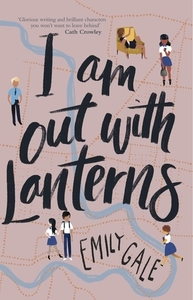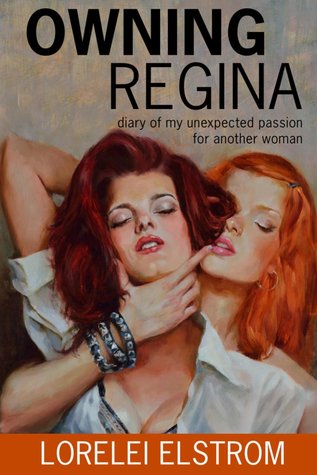I often see people complaining that there is no WLW equivalent to Aristotle and Dante Discover the Secrets of the Universe. I’m not really sure what the complaint is about: the popularity of the books? The tone? The content? The writing? I think that what people mean when they say this is that they are looking for a book with similarly affecting prose, with a convincing romance and a kind of wistful tone. While I’m sure that everyone reading this could probably offer up five, ten, twenty books that meet the brief, the one that does it for me is I am Out With Lanterns by Emily Gale. This is my personal WLW Ari and Dante – the book that makes me feel special things. To me, it is superior in every way.
I am Out With Lanterns is a companion novel to Gale’s book The Other Side of Summer. The focus is shifted from the titular Summer Jackman to her sister Wren, goth and moody and furiously bisexual. Along with Wren, there are five other teenage narrators, each giving their own voice to what it means to be young in Melbourne. Part of the reason why the book resonates so strongly with me because it is entrenched in my home town: the landmarks are real and tangible, and I can perfectly picture every scene. There is such a strong sense of place in this novel, and the characters only reflect the diversity of living in this city.
Aside from Wren, we are introduced to Adie, returning to Melbourne with her artist father after time in Europe and Tasmania. Juliet remembers Adie from their childhood together, but Adie doesn’t have the same recollections. There is also Wren’s neighbour and best friend Milo, who is autistic and also in love with Wren. Ben, a boy who mercilessly bullies Milo, is also afforded a POV. This may seem like a lot of perspectives, but the stories are deftly interwoven. The characters are connected in a web, one leading to the next, and the way they perceive each other is engrossing and believable.
A reason why this book works so well for me is that it understands what it means to be 17 and yearning for another person. Crushes in various forms play out on the page, and whether it be Milo’s interest in Wren, or Wren’s interest in Adie, the intensity of teenage feeling is given ample time and respect to develop. This is the wistfulness I mean; it is a pleasure to read YA which amplifies warm feelings about our teen years, when it is so easy to write them off as an embarrassment. This book champions the tumult of young love, in such a way that I was left looking back on my high school crushes with true fondness.
The identities of each character are also given respect and care. Whether it be Milo’s autism, Wren’s bisexuality, Juliet’s two mums, or the introduction of Hari, a lesbian, these parts are all shown to be integral to who these characters are as people: their foundations are clear, and their journeys are relatable and realistic. It is diversity which reflects the real world, and shows how important a sense of identity is to our formative years.
I am gushing, because I love this book. It is an excellent example of Oz YA, which is a small but thriving community which could always use more readers. It is beautifully told, with some gorgeous turns of phrase which truly reflect the Emily Dickinson poem referenced in the title. It is raw and real, full of complicated relationships and unrestrained feelings. If you’re looking for a YA read that will fill you up and leave you ruminating, this is a first class choice.

